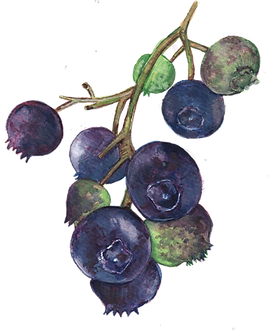When the coronavirus threatened to take away everything, Amy Suardi began to record a life that suddenly felt more precious. Amidst the distress of lockdown and the trials of finding herself running a school with her five children, it was often the ordinary domestic moments that were the most poignant.
Suardi’s journal-keeping, in the form of micro-memoirs, poems, and short essays, turned into a discovery of hidden beauty and how even the smallest things can be openings into deeper, larger worlds.
Originally published on her webpage Painting with Words, these pieces bring together the first seven months of the pandemic and include Suardi’s experience of marching for racial justice, witnessing high school end for her daughter without prom, graduation, or even hugs, and dropping her off at a hollowed-out Covid-era college campus.
Sometimes light-hearted, sometimes meditative, Suardi’s writing has been noted for its “gentleness intertwined with intensity of emotion” and its “keen perception of the moment observed.”
Whether the works are read individually or together, this genre-defying collection creates a pointillist portrait of one woman’s experience of what was lost in the pandemic, and perhaps most of all, what was found.

“I’m comforted by the familiarity of vulnerability, of shared hopes, life, and loss… Of paths well-trod and a shared humanity. I am grateful for her courage and the beauty of her art.
-Sharon Larkworthy-

“[This book] is full of Suardi’s wonder at this world in chaos, full of warmth, caring and the inadequacy we a feel so poignantly during the crises in our lives. It’s hard to put down.”
- Caroyln M. -

“What is phenomenal about Amy’s writing is the gentleness intertwined with intensity of emotion and keen perception of the moment she’s describing. It’s incisive but soothing and relatable all at the same time. And it so often makes me cry just a bit. Or sometimes a lot.”
- Melanie Janin -
“I love the variety of Amy’s writing — from super short to long entries that are more like short stories, to lifted texts straight from her children’s schoolwork, misspellings and all. It’s all so vivid. The pillowy bread, the sizzle of the onions dropped into hot oil, the memories of her family’s slower, rich times in Italy. I can tell she loves what she’s doing.”
— Bradley Jacobs -

"A beautifully written book that captures the immense challenges of the moment while spotlighting the joyful parts of life that often get taken for granted. It’s both a refreshingly honest portrait of a modern American family and a snapshot of a surreal moment in history.”
- Jamie Bufalino -
"Such a beautiful and poignant reflection of the past year. Ms. Suardi’s poetic writing is hypnotic. She is magical with her detail and imagery. A wonderful gift for yourself and others!”
— Elyse Kalmans -
"The writer vividly portrays her feelings about this time—from personal and familial routines to national upheaval—with strokes that are poignant, delightful, and heartbreaking. Ms. Suardi sketches with authenticity the ache of watching her children miss “normal” life events as well as national crises of the pandemic itself, racial injustice, and a country losing its balance. Through it all, she skillfully juxtaposes dark sadness with the joy of nature and new discoveries.”
- Susan Robinson -

“Amy’s writing invites reading again and again. It’s such a relief to read her essays and enjoy the poetry about nature in these days of fear and apprehension. Her writing makes my day and gives me hope.”
- Beth Swartz -
“Amy writes beautifully and from her heart. It is the routine she has to keep up combined with a deep sadness that many of us feel. She speaks for many of us that can’t put it into such eloquent words.”
- Susan Mauritz -


